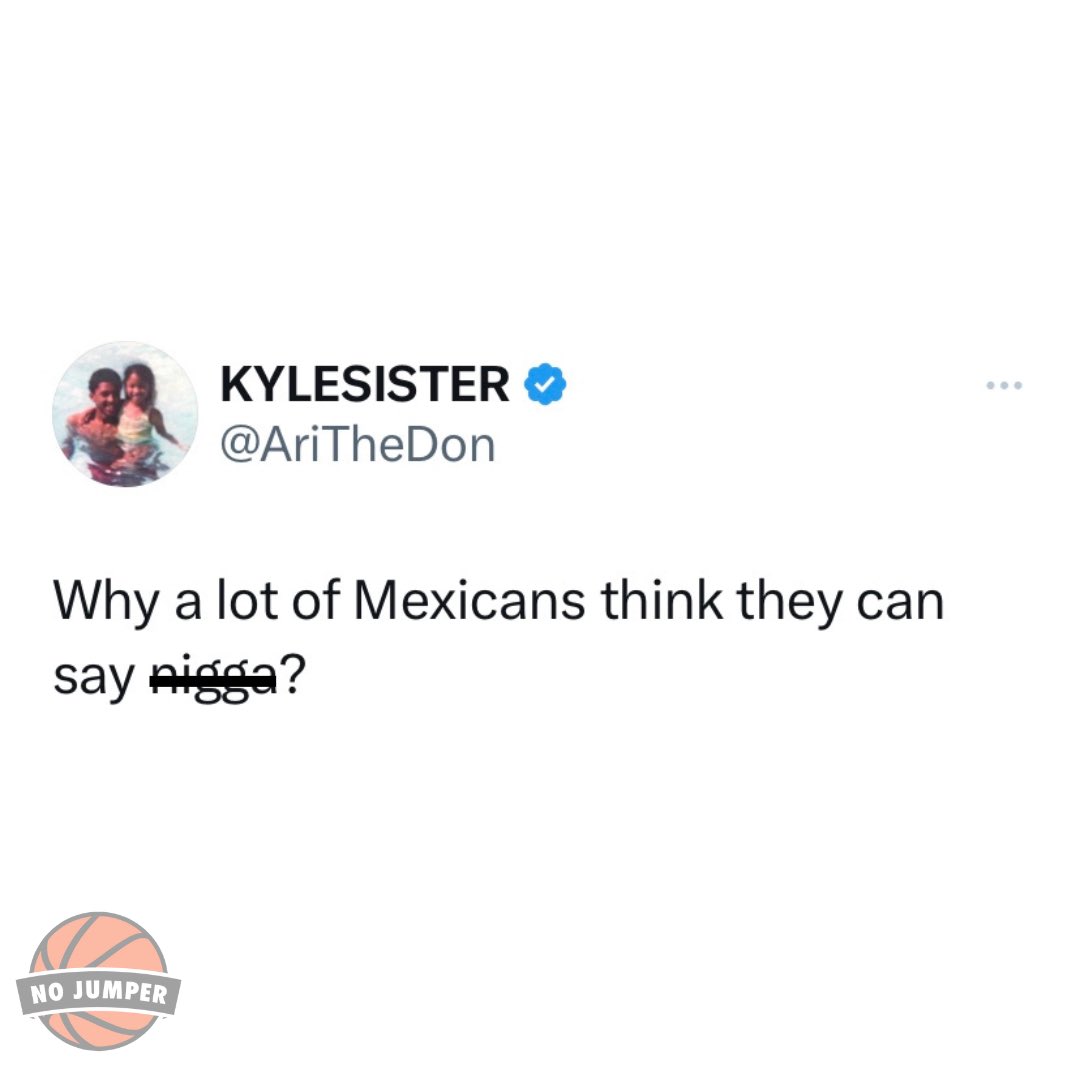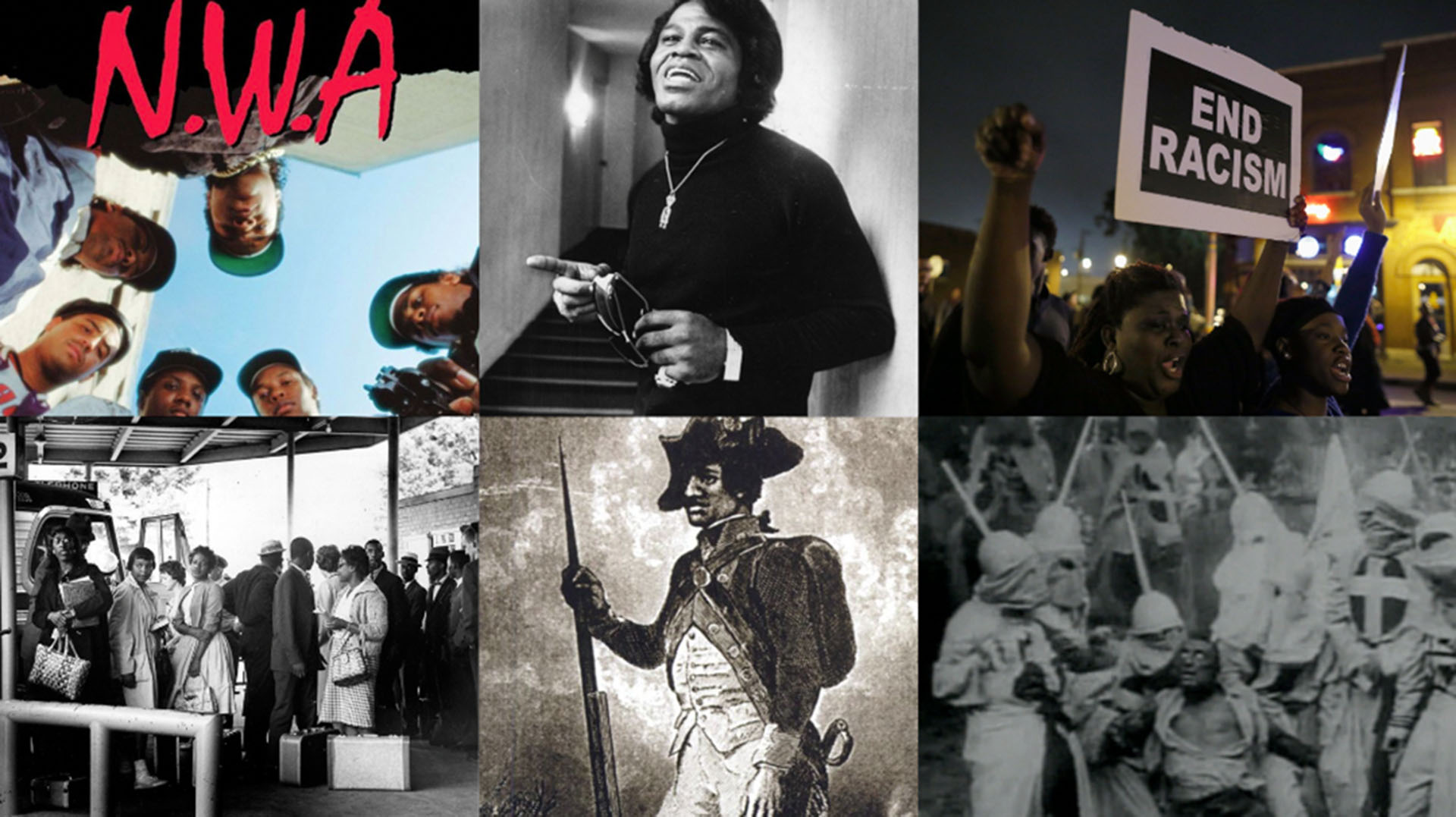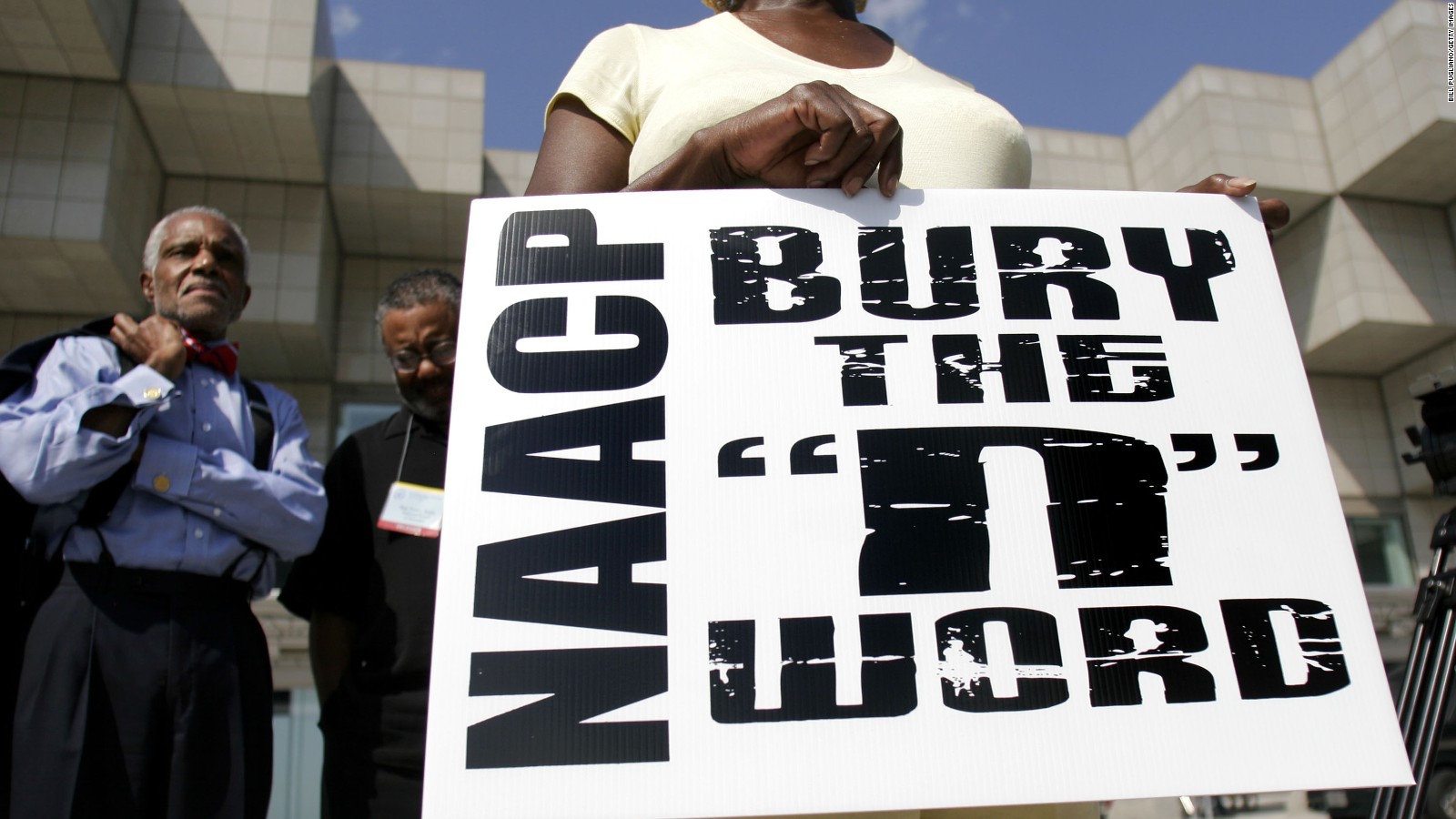Mexicans And The N-Word: Unpacking A Deeply Charged Debate
The question of whether Mexicans can say the N-word is a complex and often volatile topic that ignites passionate discussions across various communities. It's a query that delves deep into the realms of history, identity, racial dynamics, and the profound impact of language. While seemingly straightforward, the answer is anything but simple, touching upon centuries of oppression, cultural appropriation, and the nuanced power structures that shape our society.
This isn't merely about vocabulary; it's about understanding the historical weight carried by certain words and the ethical responsibilities that come with their usage. This article aims to explore the multifaceted layers of this debate, offering insights into the origins, cultural significance, and the profound implications of using such a historically charged term, particularly for non-Black individuals, including those of Mexican heritage.
Table of Contents
- The Core Question: Can Mexicans Say the N-Word?
- Understanding the N-Word: A Brief History and Its Weight
- Mexican Identity and the N-Word: A Complex Tapestry
- The Fallout and Consequences: Beyond Just Saying It
- Allyship and Respect: Navigating Difficult Conversations
- The More Important Question to Ask
- Moving Forward: Fostering Understanding and Empathy
The Core Question: Can Mexicans Say the N-Word?
The fundamental question, "Can Mexicans say the N-word?" often sparks heated debates, but for many, the answer should be clear. The consensus among those who understand the historical context and racial dynamics of the word is a resounding no, if one is not Black. This isn't about policing language for the sake of it, but about acknowledging the specific, painful history tied to the N-word and its unique relationship to Black identity and oppression. The word is not merely a derogatory term; it is a symbol of systemic racism, slavery, and centuries of dehumanization inflicted upon Black people.
When non-Black individuals, including those of Mexican descent, ask why they can't say it but Black people can, the question fundamentally misses the point. It's not about who "can" say it in a literal sense – anyone can utter the sounds – but rather about who has the historical and cultural authority, and more importantly, who has the right to reclaim and redefine a word that was used to oppress them. The power dynamic is crucial here. The word's usage by Black individuals within their community often serves as a form of reappropriation, stripping it of its power as a tool of oppression and transforming it into a term of endearment or solidarity. This is a privilege and a right earned through shared historical trauma and resilience, a right that no other group possesses.
Understanding the N-Word: A Brief History and Its Weight
To truly grasp why the question of "Can Mexicans say the N-word?" is so contentious, one must first understand the word's origins and its enduring impact. The N-word is controversial because it carries an unparalleled historical weight, unlike almost any other word in the English language.
The Origins of a Slur
The N-word emerged from the Spanish word "negro," meaning black. While initially a descriptive term, its usage in English-speaking societies, particularly in the context of chattel slavery in the Americas, rapidly transformed it into a dehumanizing slur. It became synonymous with brutality, inferiority, and the systematic denial of basic human rights to Black people. For centuries, it was hurled at Black individuals to assert dominance, inflict pain, and reinforce their subjugated status. This history of violence, degradation, and systemic oppression is embedded in every syllable of the word. It is a linguistic scar, a constant reminder of unimaginable suffering.
The Dual Nature of the Word
The N-word's power lies in its dual nature. As the provided data states, "The n word is controversial, it can be used casually as a term of endearment amongst friends or be one of the gravest insults if used by the wrong person in the wrong context." This duality, however, is almost exclusively reserved for the Black community. When used internally, among Black individuals, it can be a term of camaraderie, a linguistic marker of shared experience and resilience. This reclamation is a powerful act, a way of stripping the word of its venom when wielded by oppressors. However, when used by anyone outside this community, regardless of intent, it reverts to its historical function as a slur. The context shifts, and with it, the meaning and impact. It is a word that carries the weight of generational trauma, and its casual use by non-Black individuals, even if they believe they are using it "casually," often dismisses this profound history.
Mexican Identity and the N-Word: A Complex Tapestry
The conversation around "Can Mexicans say the N-word?" is further complicated by the diverse and often nuanced nature of Mexican and Mexican-American identity. While Mexicans are often considered a racialized minority group in the United States, their historical experiences and racial classifications differ significantly from those of Black Americans. This distinction is critical when discussing the N-word.
Mexican-American Identity and Racial Classification
The question "Should you even be called a Mexican? Maybe you're a 'Murican by this point" highlights the complex identity struggles faced by many of Mexican descent in the U.S. Historically, Mexican-Americans have occupied a unique and often ambiguous position within the American racial hierarchy, sometimes classified as "white" (especially for census purposes), and at other times subjected to racial discrimination and treated as a distinct "other." This fluidity in racial categorization, however, does not equate to the specific and continuous history of chattel slavery and Jim Crow laws that define the Black American experience. While Mexicans and Mexican-Americans have faced their own forms of discrimination, exploitation, and systemic racism, this history is distinct from the one that gave birth to and empowered the N-word as a tool of anti-Black oppression.
Even within Mexico, there is a complex racial hierarchy influenced by colonialism, with Indigenous and Afro-Mexican populations often at the bottom. However, this internal complexity does not grant individuals of Mexican heritage the right to use a word specifically designed to oppress Black people in the U.S. context. The history of the N-word is rooted in the transatlantic slave trade and American racial caste system, not the unique racial dynamics of Mexico.
Cultural Nuances: 'Güey' vs. the N-Word
The provided data notes, "It is common to hear Mexicans say ‘güey’ at the end of a sentence when talking to friends or those of the same status." This observation points to the existence of culturally specific terms of endearment or informal address within the Mexican community. 'Güey' (or 'wey') is an excellent example of a word that, while potentially offensive in certain contexts (like "dude" or "idiot"), can be used casually and affectionately among peers. This is a culturally internal phenomenon, where the meaning is understood and negotiated within the community. The key difference here is that 'güey' does not carry the same historical baggage of systemic oppression and violence against a specific racial group that the N-word does.
The mistake many non-Black individuals make is to equate their own community's casual terms with the N-word, arguing that if they can use one, they should be able to use the other. This argument fails to acknowledge the bleak history of the N-word. As the data points out, "Yet when defending themselves, they rarely address the bleak history of the word." This lack of historical understanding is precisely why the comparison is flawed and why the usage by non-Black individuals, including Mexicans, is deeply problematic. The N-word is not just a casual term; it is a historical weapon.
The Fallout and Consequences: Beyond Just Saying It
The phrase "Anyone can say it — but that doesn't mean there won't be fallout for doing so" is a crucial point in this discussion. While technically true that anyone can physically utter the N-word, the social, professional, and personal consequences of a non-Black person doing so can be severe and far-reaching. This "fallout" isn't merely about political correctness; it's about the legitimate pain, anger, and distrust that such usage inflicts upon Black individuals and communities.
When a non-Black person uses the N-word, even if they claim to be doing so "casually" or without malicious intent, it often reopens historical wounds. It can be perceived as a dismissive act, trivializing centuries of suffering. The impact is not determined by the speaker's intent but by the listener's experience and the word's inherent power. The responses to such usage are varied, ranging from immediate confrontation and social ostracization to professional repercussions, damaged relationships, and a loss of credibility. For many, hearing the word from a non-Black person, regardless of their background, is a reminder of their historical vulnerability and ongoing struggle against racism. It reinforces the idea that their pain is not understood or respected.
Consider the anecdote from the data: "She tells me that growing up in Compton, her classmates were predominantly Black and and did not use the term. She did, however, hear the term." This implies that even in environments where racial lines might seem blurred or intermingled, the N-word's usage was still distinct and understood within its proper context—often as a slur when heard from outside the Black community. This personal experience underscores the deep-seated understanding within communities about who can and cannot use the word without causing harm.
Allyship and Respect: Navigating Difficult Conversations
For individuals of Mexican heritage who wish to be allies to the Black community, understanding the N-word's significance is paramount. Allyship is not about claiming shared oppression to justify using a word; it's about acknowledging distinct histories and standing in solidarity against all forms of racism. This means recognizing that while Mexicans face their own battles against discrimination, their historical relationship with the N-word is fundamentally different from that of Black people.
True allyship involves listening, learning, and respecting the boundaries set by the community most impacted by a particular word. It means understanding that "If you're not Black, don't say it. It's not that hard to understand." This isn't an arbitrary rule; it's a plea for respect and an acknowledgment of historical trauma. It's about recognizing that some words, due to their specific historical lineage and power dynamics, are simply not for everyone to use. Engaging in difficult conversations about race and language requires humility and a willingness to prioritize the feelings and historical experiences of others over one's own desire to use a word.
The More Important Question to Ask
Instead of focusing on "Can Mexicans say the N-word?", the more important question to ask is: Why would you want to? What purpose does it serve for a non-Black person to use a word so deeply entrenched in anti-Black racism? The desire to use the word often stems from a lack of understanding of its historical weight, a misguided attempt at solidarity, or simply a disregard for its painful legacy. This question shifts the focus from a debate about "rights" to a reflection on empathy, respect, and historical awareness.
It encourages individuals to delve into the origins, cultural significance, and the profound impact of such words. It prompts a deeper examination of one's own positionality within racial hierarchies and the responsibility that comes with language. Understanding that the N-word is not a generic slur, but a specific weapon of anti-Black racism, is crucial. It is a word that belongs to the history and reclamation of Black people, and no other group, regardless of their own experiences with discrimination, has the moral authority to wield it.
Moving Forward: Fostering Understanding and Empathy
The debate surrounding "Can Mexicans say the N-word?" is a microcosm of larger conversations about race, privilege, and historical memory. It highlights the ongoing need for education and empathy in navigating complex racial dynamics. For individuals of Mexican heritage, understanding their unique position within the American racial landscape, and simultaneously recognizing the distinct historical oppression faced by Black Americans, is vital. It's about acknowledging that while different groups have faced discrimination, the N-word holds a singular place in the lexicon of anti-Black racism.
To foster a more inclusive and respectful society, it is imperative that we all commit to understanding the profound impact of our words. This means listening to the voices of those who have been historically marginalized and accepting their boundaries regarding language that has caused them immense pain. It means moving beyond a simplistic view of who "can" say what, and instead embracing a nuanced understanding of history, power, and the ethical responsibilities that come with communication. Ultimately, the goal is not to police language for the sake of it, but to cultivate a society where respect, empathy, and historical awareness guide our interactions, ensuring that words, especially those with such a dark past, are used with the utmost care and consideration.
In conclusion, while the question "Can Mexicans say the N-word?" leads to diverse perspectives and opinions, the answer, when rooted in historical understanding and respect for the Black community's experiences, is clear: no. The N-word is a unique symbol of anti-Black oppression and its reclamation belongs solely to the Black community. By respecting this boundary, individuals of Mexican heritage, and all non-Black people, contribute to a more just and empathetic world.
What are your thoughts on this complex issue? Share your perspectives in the comments below, and if you found this article insightful, consider sharing it with others to foster a broader understanding of this critical conversation. Explore more articles on racial justice and cultural sensitivity on our site to deepen your knowledge.



Detail Author:
- Name : Mr. Aiden Adams
- Username : saul.lindgren
- Email : donnelly.casimer@yahoo.com
- Birthdate : 1970-09-27
- Address : 352 Elinor Locks Kathrynberg, TN 02553-6014
- Phone : 520-860-6131
- Company : Nikolaus, Bechtelar and Koepp
- Job : Civil Drafter
- Bio : Deserunt sed laborum quia magni eaque eum. Voluptas enim dolorem est consequatur. Nihil natus officiis id nobis. Ea blanditiis tempora dicta.
Socials
linkedin:
- url : https://linkedin.com/in/lonniehaley
- username : lonniehaley
- bio : Quod quae corrupti expedita voluptatem.
- followers : 2098
- following : 2498
instagram:
- url : https://instagram.com/haley1975
- username : haley1975
- bio : Consequuntur est et rerum nemo eum vero dolorem. Eveniet quia et ut veritatis accusamus.
- followers : 2792
- following : 141
facebook:
- url : https://facebook.com/lonnie.haley
- username : lonnie.haley
- bio : Tenetur minus est voluptatem. Et magni eveniet itaque aut iste.
- followers : 6371
- following : 2594
tiktok:
- url : https://tiktok.com/@lonniehaley
- username : lonniehaley
- bio : Laboriosam sint porro molestiae qui beatae necessitatibus.
- followers : 1137
- following : 2916
twitter:
- url : https://twitter.com/haley2007
- username : haley2007
- bio : Quia voluptates sint suscipit fugiat. Ab unde saepe provident aut aut. Qui excepturi dolores et culpa odit.
- followers : 5075
- following : 447